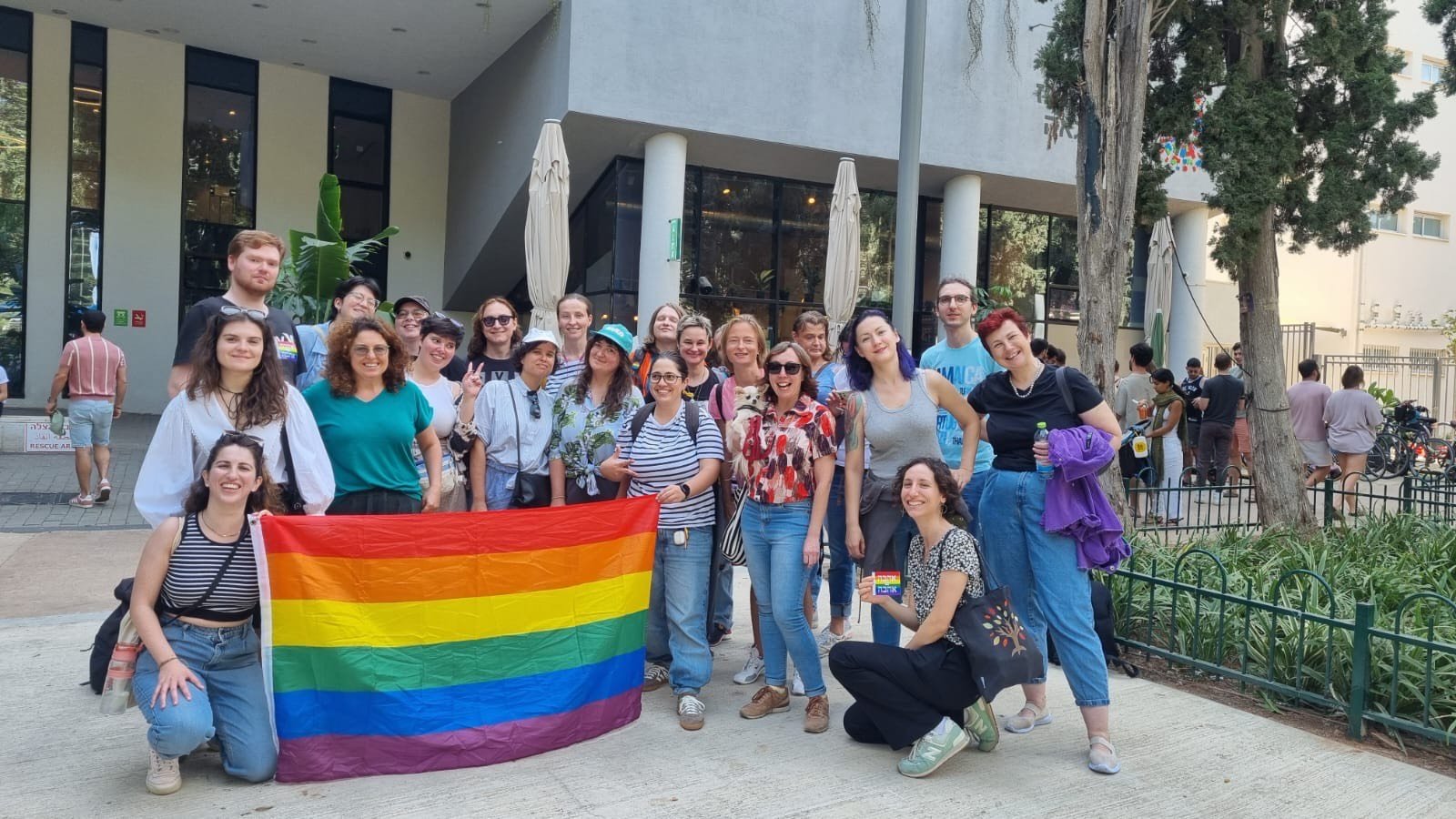Project Kesher Israel
The needs of Russian-speaking women and girls in Israel are seriously underfunded.
Despite some displaced individuals in the north and south being Russian speakers, many reside in relatively safe areas. However, the aftermath of October 7th and the ongoing war have disproportionately affected the Russian-speaking community. Unfortunately, government and philanthropic funding have not kept pace with these needs.
PKI has been working closely with women immigrants and refugees in the Russian-speaking Ukrainian and Russian communities for the last 15 years.
Although this community often lives close to the poverty line, most women in our network were able to put food on their tables through local programs and menial jobs prior to October 7th. Since the attack on Israel, that fragile system has completely collapsed and hundreds of women in our network no longer have food. They have gone from impoverished to desperate as they have lost even the most simple jobs cleaning homes and offices and caring for children and the elderly. PKI seeks to significantly scale up its programming, which includes the following initiatives, to meet the enormous need.
Emotional and Mental Health Support for Women and Children in Russian
Recent immigrants and refugees from Ukraine and Russia sought refuge in Israel, escaping the Ukrainian war. Now, they and their children are being re-traumatized due to the horrific Hamas attacks and resulting war in Israel. PKI leaders and consultants are providing six online programs a day to help women keep themselves and their families safe and calm.
Ulpan
Government funded Ulpan (Hebrew language courses) are available as a resource to help new immigrants adjust to life in Israel. However, because there is currently approximately a 1.5 year wait for these free classes, PKI has stepped in to provide Hebrew programs to help immigrants and refugees adjust as quickly and comfortably as possible.
Financial Literacy Training
PKI’s training provides critical information on the banking and credit card systems in Israel, payments for rent, loan payments, reading pay stubs, pensions, budget management, benefits, job searches, and resume and cover letter writing.
Food Parcels or Essentials Vouchers for Women, Children and the Elderly
The cost is $100 a parcel or a voucher for a week of food/essentials. Many of these households do not qualify for government assistance because they are temporary transplants from Ukraine.
Jewish Life
During wartime, Jewish life provides essential support and stability. PKI hosts large-scale Jewish holiday celebrations with 200+ women attending each event. Additionally, PKI has launched the third cycle of its Bat Mitzvah program, fostering personal and communal growth for 12 new participants, including recent immigrant mother-daughter pairs.
Support for the LGBTQ+ Community
PKI has been instrumental in supporting Russian-speaking LGBTQ+ immigrants, especially LGBTQ+ women facing institutionalized homophobia and legal barriers. For interfaith couples, where one partner is not Jewish, challenges are significant—denial of citizenship, lack of financial support, and restrictions on basic rights. PKI has addressed these barriers by providing critical services including mental health support, financial assistance, Ulpan (Hebrew language) courses, and legal advocacy.
History
Project Kesher (PK) was founded in 1989 to develop Jewish women leaders, grow pluralist Jewish communities, and advocate for civil society. In 2009, PK incorporated Project Kesher Israel (PKI) to support program graduates from the post-Soviet States. PKI’s early programs addressed the immediate needs of the Russian-speaking community - financial literacy in Israel, Jewish education, and learning how to live in a diverse society, adjusting to their new life in a new place.
With the influx of 200,000 immigrants and refugees from Ukraine, Russia, and Belarus due to the war in Ukraine, PKI’s work has grown exponentially.
PKI has focused on helping ensure a successful personal and professional adjustment to living in Israel through programs that introduce immigrants to Israeli life while helping them cope with the impact of war and the stresses of change. Priorities have included: providing financial assistance and language classes, hosting seminars around Jewish education, emotional support, financial literacy, and supporting Israeli LGBTQ+ immigrants.
The Russian-speaking community in Israel faces a plethora of challenges including a language barrier (26% of the 1.5 million Russian speakers in Israel do not speak Hebrew), harmful anti-immigrant stereotypes and discrimination, a new political structure, economy, and culture shock. In order for women from the Russian-speaking community to succeed in Israel, they need a professional network, classes and training in Russian, and a supportive community. When women are given the tools and language to address the systemic inequalities they are facing, they immediately begin to work on solutions. Russian-speaking immigrants had limited access to Jewish life and culture before coming to Israel, which is another major cultural barrier to integration in Israel.








